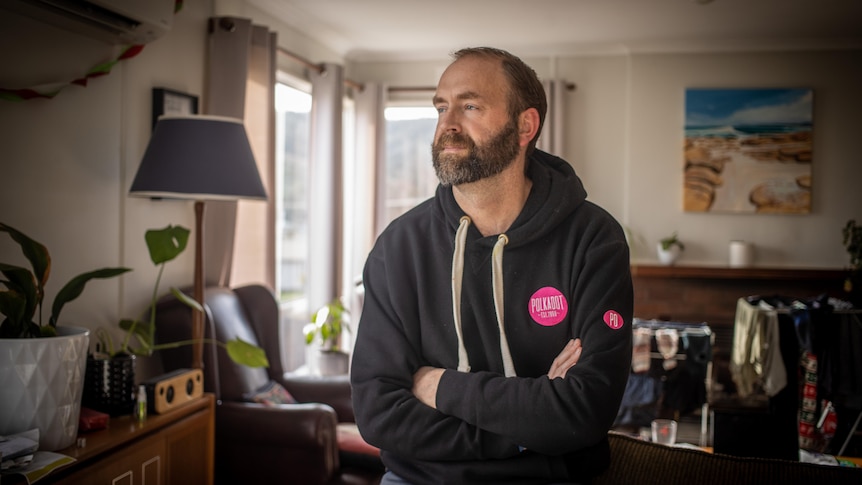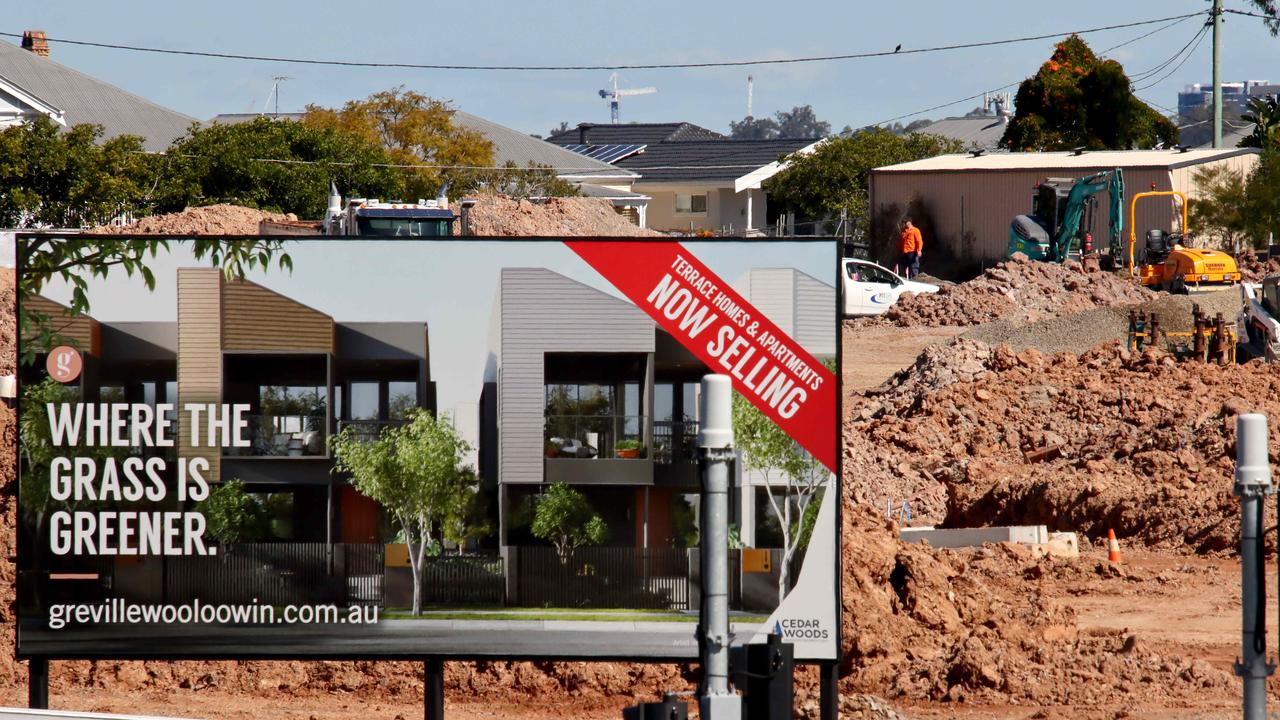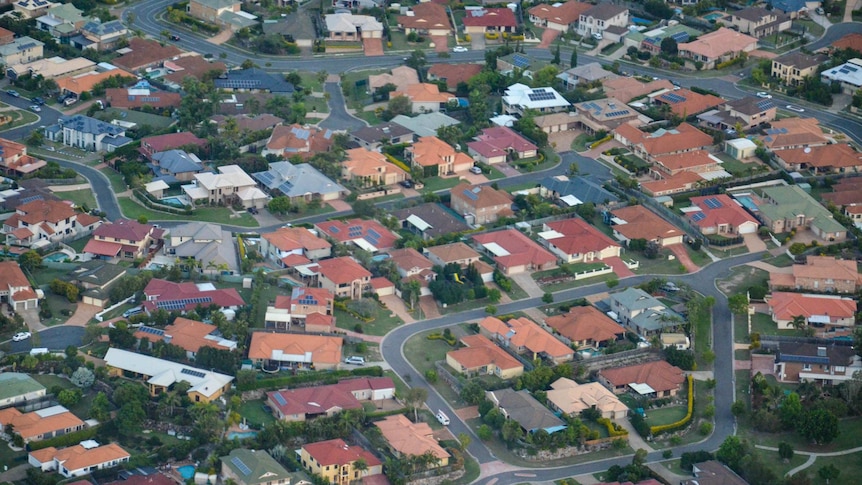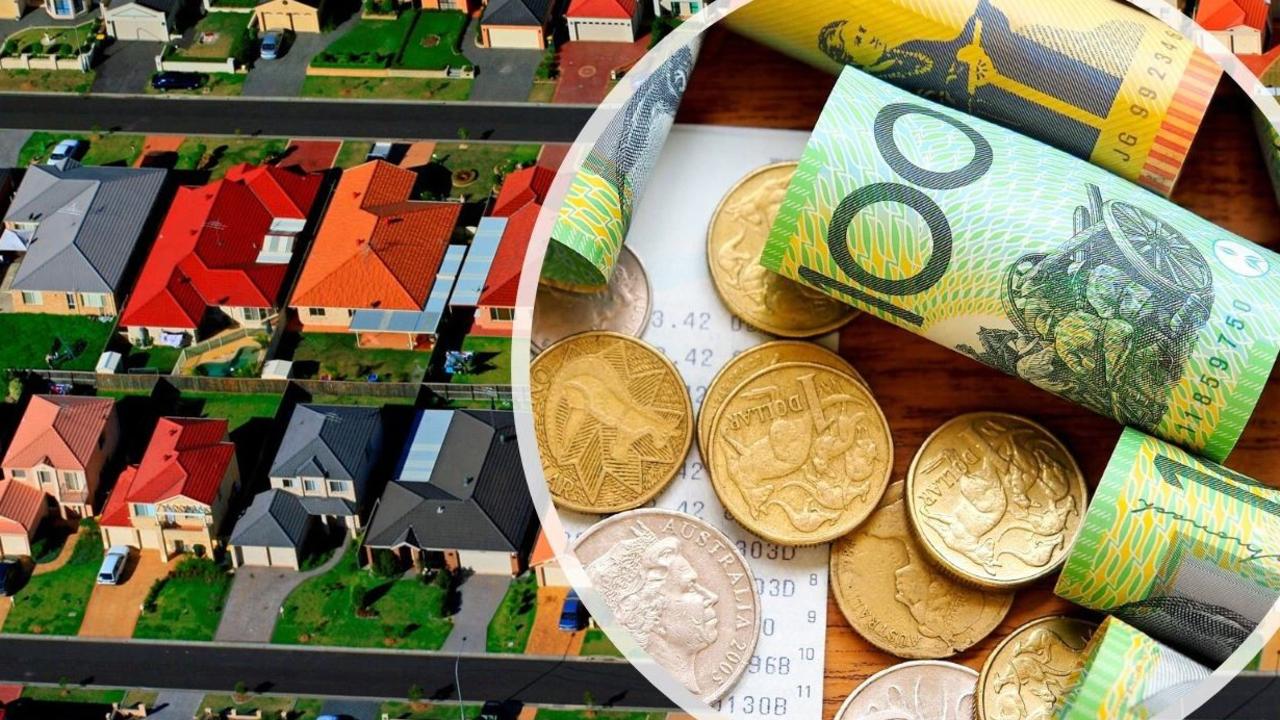Chris* signed up to buy an $800,000 townhouse last year in the $180 million development called Greville, in the northern suburb of Wooloowin, and was scheduled to move into the new home with his partner and daughter in 2023.
The project was set to deliver around 250 homes, a recreation zone and pool, as well as a community park, and had originally been marketed as an urban village just 5km north of Brisbane’s CBD.
Now, the family has been left angry and upset after Perth-based developer Cedar Woods announced it was delaying the project, blaming rising costs, labor shortages, significant rainfall events in Queensland and extended construction timelines.
Buyers have been given the option to have their deposits refunded and will be offered the first choice when the project is remarketed, according to the developer, which it said hoped would be in the second half of next year.
But Chris claims they are “stuck in no man’s land” because the developer doesn’t have a clause in which they can cancel the contract, a claim Cedar Woods would not comment on.
In a letter to buyers, Cedar Woods proposed that both the developers and buyers agree to “a mutual termination of the contract” as the project would be “indefinitely delayed”.
But so far the family says it has refused to accept the return of their deposit, nor had any responses to other inquiries.
“There’s never been any consultation whatsoever. There was a post on Facebook in April about how they would start (construction), but then the post was deleted and we got phone calls saying everything was cancelled,” Chris told news.com.au.
“Financially, we have been really screwed by Cedar Woods’ decision because now the property prices are still up and we personally don’t think they are going to fail as much as speculators say. Add this to the pressures due to the cost of living going up and interest rates going up, greatly limit our choices.
“We have been looking at similar places and we are not going to get anything for under $1 million for the area.
“We tried to put an offer on a development of four townhouses and the real estate agent basically laughed at us as they are after the mid-$1 million mark for a place with the same square meterage and floor plan similar to what we had bought. ”
Cedar Woods did not respond to a news.com.au’s question on whether the townhouses and apartments would be sold at a higher price once the project was relaunched.
A post on its official Greville Facebook page back in April that said works were under way has now been deleted, but homeowners were left blindsided when the project was shelved just a month later.
“Construction is off to a great start in 2022,” the now deleted post read.
“Despite the weather in southeast Queensland, we are happy to share that civil works on the site are partially complete and construction will begin shortly. It is an exciting time for Greville and we are excited to show you what is to come.”
Chris, who works as a project manager, added that communication had been poor and the couple were “most peeved” that there was “no real consultation” by the company about the decision to shelve the project.
“This decision has majorly impacted people’s lives and they just don’t seem to care,” he said.
Cedar Woods managing director Nathan Blackburne said the firm’s decision was extremely difficult, but it was the right decision in an environment where builders were facing additional risks.
“We know purchasers are disappointed and (we) have apologized to them. We greatly appreciate the understanding of our purchasers who in the main are aware of the current conditions,” he said.
Extended construction time frames and increased costs had meant that the particular stages could not proceed as completion wasn’t possible by specified completion time frames, I added.
“Cedar Woods has continued to engage with the affected purchasers and provide opportunities for further discussion while prioritizing the return of their deposit,” he said.
“The company hopes to re-engage with them when conditions in the sector are expected to improve over financial year 2023.”
But for Chris and his partner, who are in their mid-30s, their “huge” excitement about owning the townhouse has turned into a nightmare.
“We are tossing up if we have to move further out of town away from family, friends, work and childcare, which would make life more inconvenient, but that’s one of the only options we have,” he said.
“Cedar Woods made a decision to protect shareholders and their bottom line as they are a business and I get that, but the impact that it will have on our family and other families out there is not insignificant.”
Meanwhile, work is still continuing on the project site, which has left buyers furious with many lashing out at the developer on Facebook.
“Cedar Woods is continuing to finalize all of the civil construction, remediation work of the historical laundry and the delivery of the community park in preparation for the project to come back to market,” Mr Blackburne said of the continued works.
Australia’s construction crisis
It’s not the first project to be suffered this month in Australia’s embattled construction industry.
Perth developer Sirona Urban killed off a $165 million luxury tower, where more than 50 per cent of apartments had been bought off the plan, blaming skyrocketing construction costs and shortages.
Owner Matthew McNeilly said construction costs had risen by 30 per cent in the past 10 months.
Then there was a Melbourne developer that abandoned plans to build a $500 million apartment tower on the Gold Coast, blaming the crisis in the building industry and surging construction costs for making the project unprofitable.
The development by Central Equity was set to kick off this year featuring 486 apartments in a 56-storey tower, known as Pacific One, and was due to be built on a beachfront block in Surfers Paradise.
Apartments had been sold with a starting price from $650,000 each.
Overall, the construction industry has been plagued with a spate of collapses caused by a perfect storm of supply chain disruptions, skilled labor shortages, skyrocketing costs of materials and logistics, and extreme weather events.
Earlier this year, two major Australian construction companies, Gold Coast-based Condev and industry giant Probuild, went into liquidation.
Then there have been smaller operators like Hotondo Homes Horsham – a franchisee of a national construction firm – which collapsed earlier this month affecting 11 homeowners with $1.2 million in outstanding debt.
It is the second Hotondo Homes franchisee to go under this year, with its Hobart branch collapsing in January owing $1.3 million to creditors, according to a report from liquidator Revive Financial.
Snowdon Developments was ordered into liquidation by the Supreme Court with 52 staff members, 550 homes and more than 250 creditors owed just under $18 million, although it was partially bought out less than 24 hours after going bust.
Others joined the list too including Inside Out Construction, Solido Builders, Waterford Homes, Affordable Modular Homes and Statement Builders.
*Name withheld for privacy reasons
Read related topics:BrisbaneCost Of Living
.








